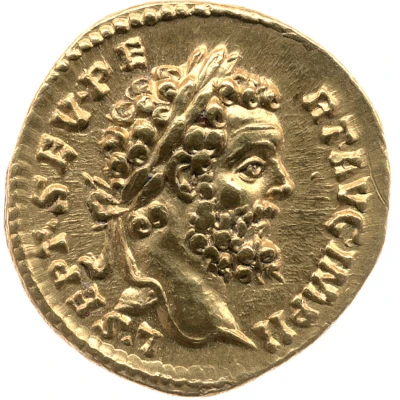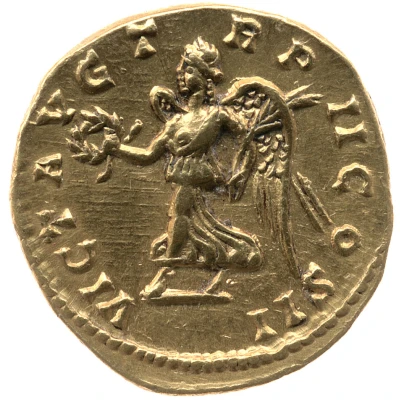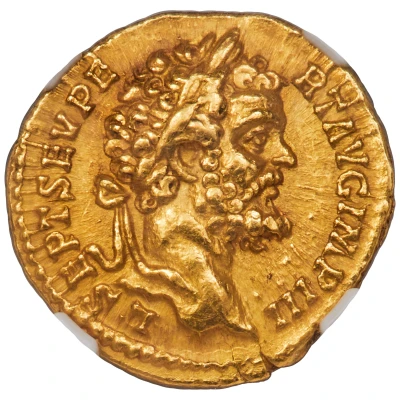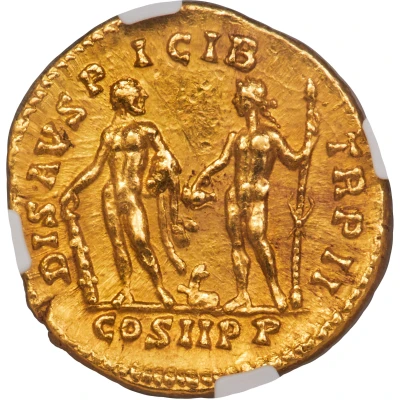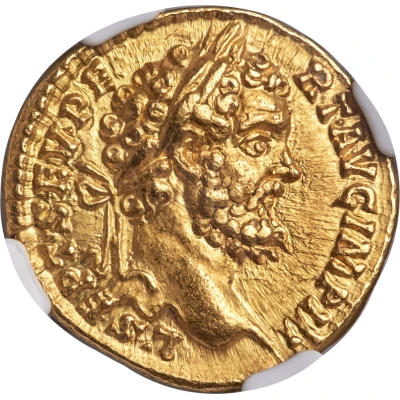
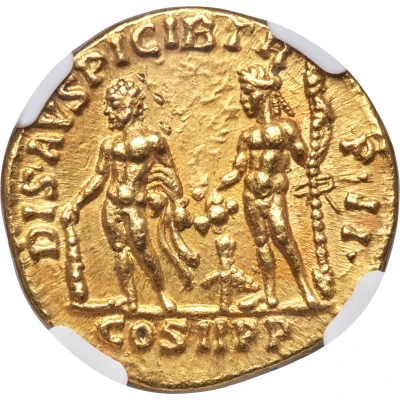

© Heritage Auctions
Aureus - Septimius Severus DIS AVSPICIB TR P II COS II P P; Hercules and Bacchus
194 year| Gold | 7.27 g | 19 mm |
| Issuer | Rome › Roman Empire (27 BC - 395 AD) |
|---|---|
| Emperor | Septimius Severus (Lucius Septimius Severus) (193-211) |
| Type | Standard circulation coin |
| Year | 194 |
| Value | 1 Aureus = 25 Denarii |
| Currency | Denarius, Reform of Augustus (27 BC – AD 215) |
| Composition | Gold |
| Weight | 7.27 g |
| Diameter | 19 mm |
| Shape | Round (irregular) |
| Technique | Hammered |
| Orientation | Variable alignment ↺ |
| Demonetized | Yes |
| Updated | 2024-10-05 |
| Numista | N#269069 |
|---|---|
| Rarity index | 100% |
Reverse
Hercules, naked, on left, standing right, holding club set on ground in right hand and lion-skin over left arm, and Bacchus, wreathed, naked, on right, standing left, emptying oenochoe in right hand over panther, seated left, head right with open mouth, and holding garlanded thyrsus in left hand.
Script: Latin
Lettering:
DIS AVSPICIB TR - P II
COS II P P
Unabridged legend: Dis Auspicibus. Tribunicia Potestate Secunda, Consul Secundum, Pater Patriae.
Translation: The protector gods. Older of tribunician power for the second time, consul for the second time, father of the nation.
Comment
Source:Online Coins of the Roman Empire (OCRE)
Interesting fact
The Aureus coin featuring Septimius Severus (DIS AVSPICIB TR P II COS II P P; Hercules and Bacchus) is an interesting piece of history because it showcases the Roman Empire's use of propaganda through currency. The coin's design features Hercules and Bacchus, two deities revered for their strength and power, which aligns with the image Septimius Severus wanted to project as a powerful and capable leader. Additionally, the coin's inscription, "DIS AVSPICIB TR P II COS II P P," translates to "By the will of the gods, two times consul, two times father of the country," further emphasizes the message of Severus' divine right to rule. This coin serves as a prime example of how currency was used as a tool for political propaganda in ancient Rome.
